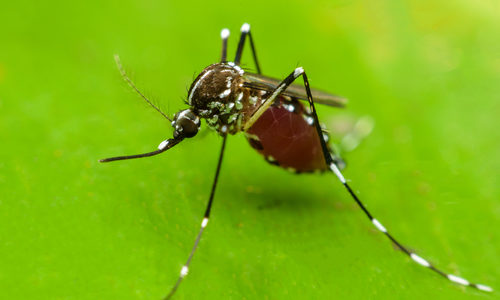According to the Centers for Disease Control and Prevention (CDC), Dengue is a virus spread through the bites of infected mosquitoes and is primarily found in the tropics and subtropics. The virus infects nearly 400 million people per year, but early recognition and treatment of the virus can drastically reduce risk of medical complications and death. Those infected by dengue can come down with either dengue fever or dengue hemorrhagic fever (DHF). DHF is a more severe form of dengue fever and can be fatal if left untreated. Symptoms of dengue fever include high fever, severe headache, severe pain behind the eyes, joint pain, muscle and bone pain, rash, and mild bleeding. Symptoms of DHF are similar. It includes a fever lasting 2-7 days, but when the fever declines, persistent vomiting, severe abdominal pain, and difficulty breathing may occur. These symptoms mark the beginning of a 24-48 hour period where capillaries become “leaky” and can cause circulatory system failure.
There is no vaccine available for dengue. The best way to avoid the dengue virus is to avoid getting bitten by mosquitoes. Here are some prevention tips that will help keep you mosquitoe free.
For a more in depth look at DHF and dengue fever, visit the CDC website.

